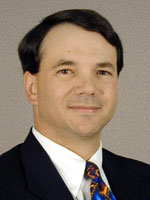Why Work in a Think Tank? Part 1
 If you are exploring careers in public policy, you should consider the policy-shaping role of think tanks. The enactment of a law by a legislative body is but the final step in a long march that typically starts outside the halls of government and the minds of policymakers. Although it is seldom obvious to casual observers, think tank professionals can exert influence on public policy that is both enormous and indirect. To understand why, you must know how think tanks work.
If you are exploring careers in public policy, you should consider the policy-shaping role of think tanks. The enactment of a law by a legislative body is but the final step in a long march that typically starts outside the halls of government and the minds of policymakers. Although it is seldom obvious to casual observers, think tank professionals can exert influence on public policy that is both enormous and indirect. To understand why, you must know how think tanks work.
Most think tanks are not formally part of the government, nor do they sustain themselves by selling products or services. They are usually nonprofit organizations, but they differ from more familiar nonprofits whose daily activities are directly and visibly linked to their missions.
For example, churches conduct worship services, the Red Cross provides on-the-scene disaster relief, the symphony hosts concerts, and the soup kitchen feeds needy people. A think tank’s mission may be to advance sound public policy, but its activities involve studying and communicating policy ideas, not enacting policy itself.
Think tanks are rarely powerhouse lobbyists, they don’t fund political campaigns, and they don’t vote in the legislature. So how do think tanks achieve their mission of advancing sound policy if they aren’t directly involved with lawmaking?
The answer lies in understanding that legislation does not spring into being at the whim of lawmakers. Rather, legislative change rests on foundations of political and social change. Far from the legislative arena, social change gives rise to political change, which ultimately gives rise to legislative, or policy, change. Policy change that does not flow ultimately from social change is not likely to be durable policy change.
To illustrate, consider some important social movements and the durable policy changes they produced. Abolition of slavery. Civil rights. Trade unionism. Women’s suffrage. Environmentalism. Temperance was another important social movement, but it did not produce durable policy change. The temperance movement weakened, and Prohibition was repealed.
If social change drives eventual policy change, then how do think tanks create social change? My former colleague, Lawrence (Larry) Reed (now president of the Foundation for Economic Education), used to ask his college economics students what one influence, more than any other, determines what kind of public policy citizens will embrace.
Reponses included the media, the economy, teachers, the unions, big business, one’s parents, and a host of others. But none of those was correct. People and the institutions they create, Larry explained, play important roles, but they do not explain fundamentally why people behave the way they do. The answer to that question is ideas.
Joseph G. Lehman is president of the Mackinac Center for Public Policy. This post is part of a series from the Institute for Humane Studies Public Policy Career Guide.
